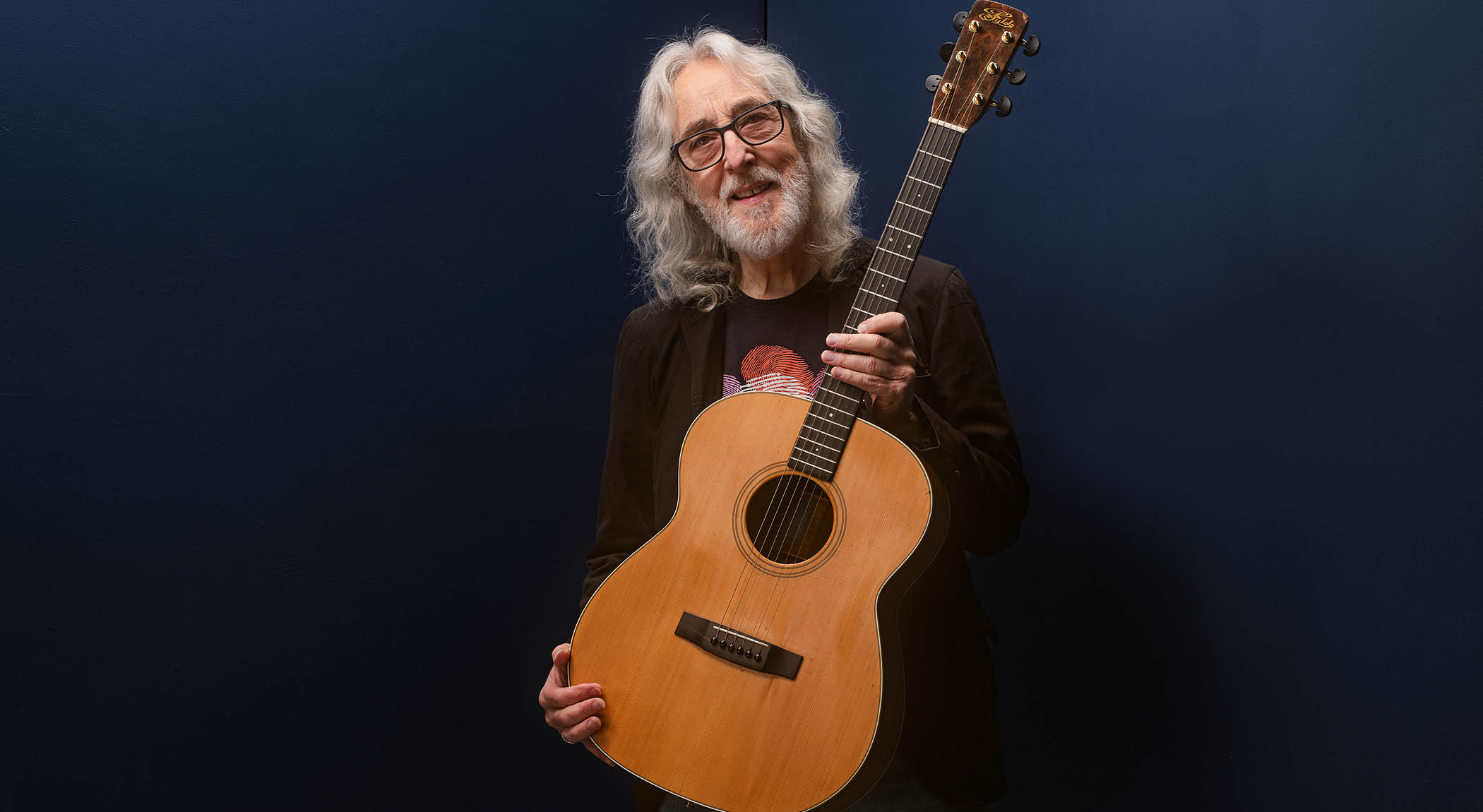
Back in the early 1970s, acoustic guitarist and songwriter Bert Jansch was already a legend. His albums became inspirational reference points for a whole generation of instrumental players, and his name was readily associated with the likes of other acoustic pioneers such as Davey Graham and John Renbourn.
At the time, premium-quality acoustic guitars were quite the rarity in these isles and dedicated builders not as plentiful as they are today.
Word of mouth was often the starting point that matched a player to such an instrument – and this was the case when Gordon Giltrap first met Bert and recommended that he commission a build from Roger Bucknall, at the time when Roger’s enterprise, Fylde Guitars, was in start-up mode.
Although Bert never really settled with his Fylde, becoming more associated with Yamaha instruments over the years, the guitar lived on and by a very circuitous route found its way back into the hands of Gordon.
“The first time I saw Bert play was in Les Cousins,” he remembers. “John Renbourn had just got married and Bert was his best man. So Bert turned up at Les Cousins wearing his wedding suit, knitted tie, suede shoes. He came on stage and he was so cool, so relaxed, and he had this John Bailey guitar. It was unbelievable. He did all the stuff that I loved, like Tinker’s Blues. Blew me away.”
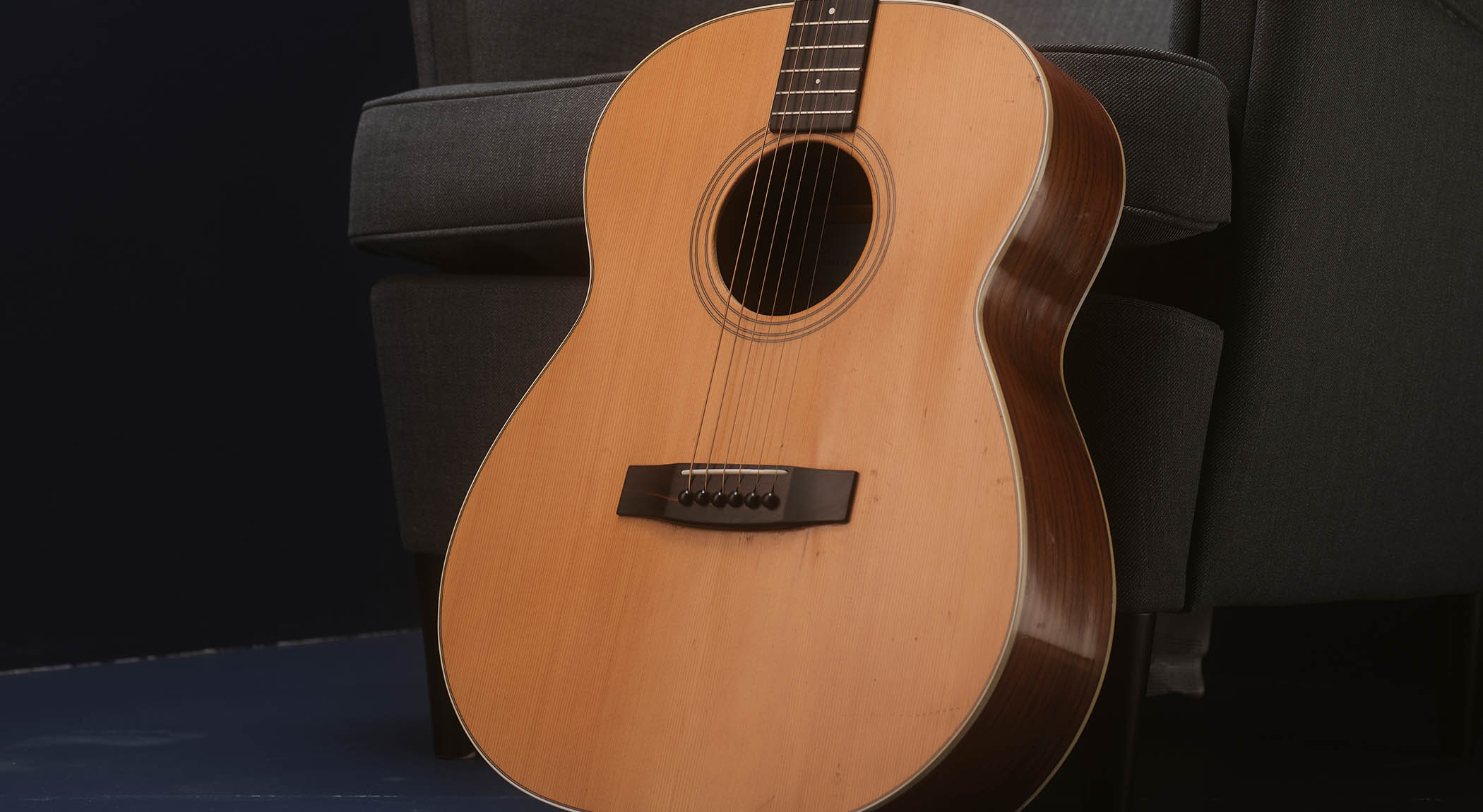
Would you say that Bert was a significant influence on your own playing?
“That first album [Bert Jansch, 1965] changed my life. It made me realise what can be done with one man and one guitar. But not only that, that album was a work of genius. And I know I’ve said this many times in interviews, but it’s like you put the album on and the atmosphere in the room changed, somehow. It was magical.
“When you make an album like that, you then have to follow it – what do you follow it with? Because it was a very, very high benchmark in terms of creativity: the songs, the guitar playing, the originality of it… It wasn’t perfect, but somehow the imperfection was what made it special.
“It was recorded in Bill Leader’s flat in Camden Town, probably on a ReVox [reel‑to-reel tape recorder] or whatever he may have had back then. But it’s all live. It’s just amazing.”
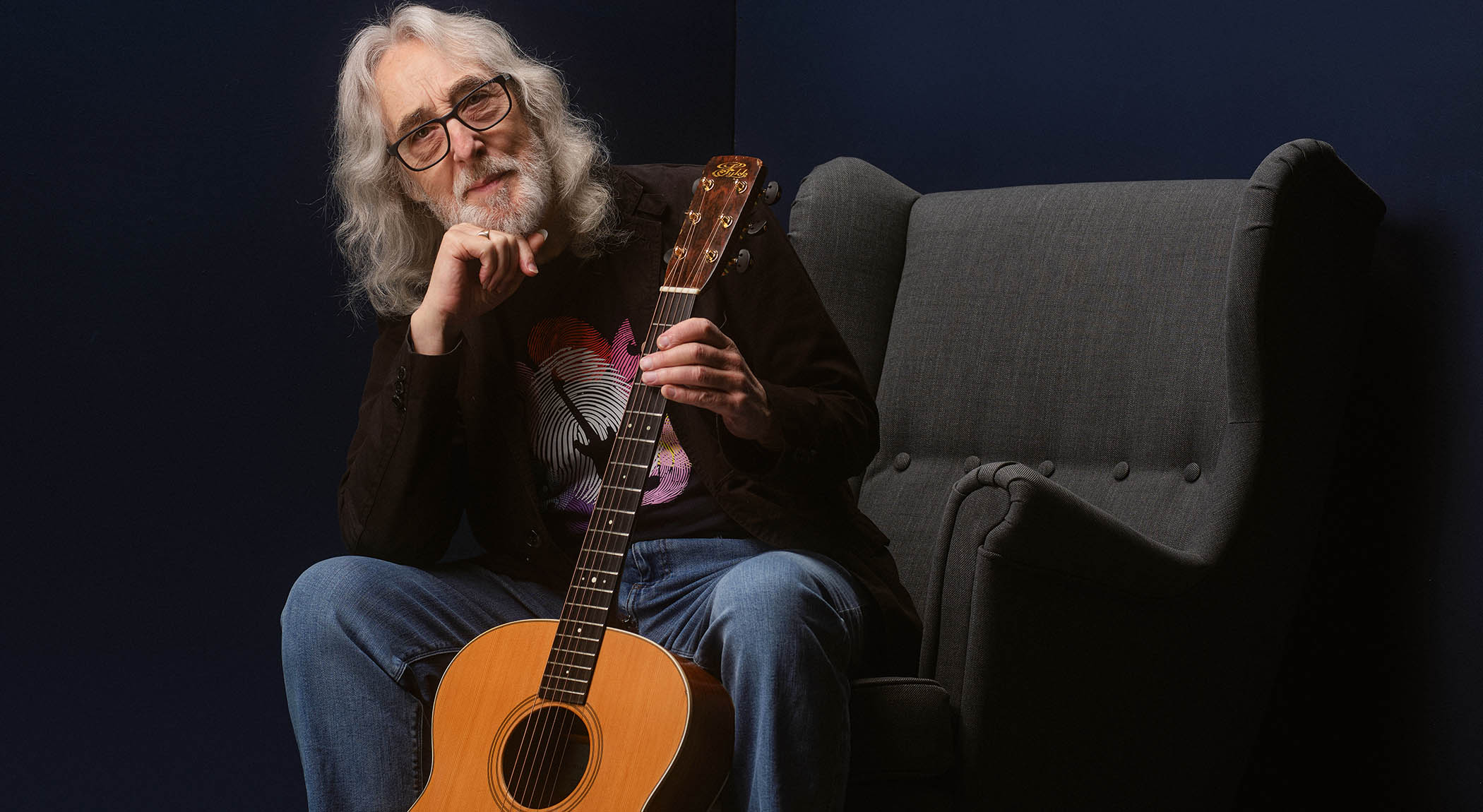
Did you get to play together with Bert at any point?
“Not really, no. I think I joined in with him in a jam session once, but we never actually played together. He [did play] on an album of mine. I’d recorded – or tried to record – a version of his classic Chambertin [Under This Blue Sky, 2002], but it never sounded quite the same as when Bert did it, mainly because it’s a proper fingerstyle guitar piece. The way I was playing, with a pick, my sound was a bit too clean for it. But he added a second part to it, which was lovely.”
I was looking for a guitar that would be the equal of my John Bailey and this guitar turned out to be it
Can you share the story behind Bert and his Fylde guitar?
“Well, I met Roger Bucknall way, way back when he was a student. It was in a folk club, I think in Southampton, and he just turned up and said, ‘I make guitars, would you like to see one?’ and he took it out of the case. I just fell in love with it.
“I was looking for a guitar that would be the equal of my John Bailey and this guitar turned out to be it and, like everyone, if I come across something out there that’s good I want to tell my friends about it.
“I was trying to spread the word about this great young guitar maker, and I think the first person that really took to Roger’s guitars was Martin Carthy. I thought I wanted to get as many name players to play Roger’s guitars and help him develop a reputation. So I mentioned it to Bert and he said, ‘Okay, get him to make me one.’ And, lo and behold, Roger made this very instrument.”
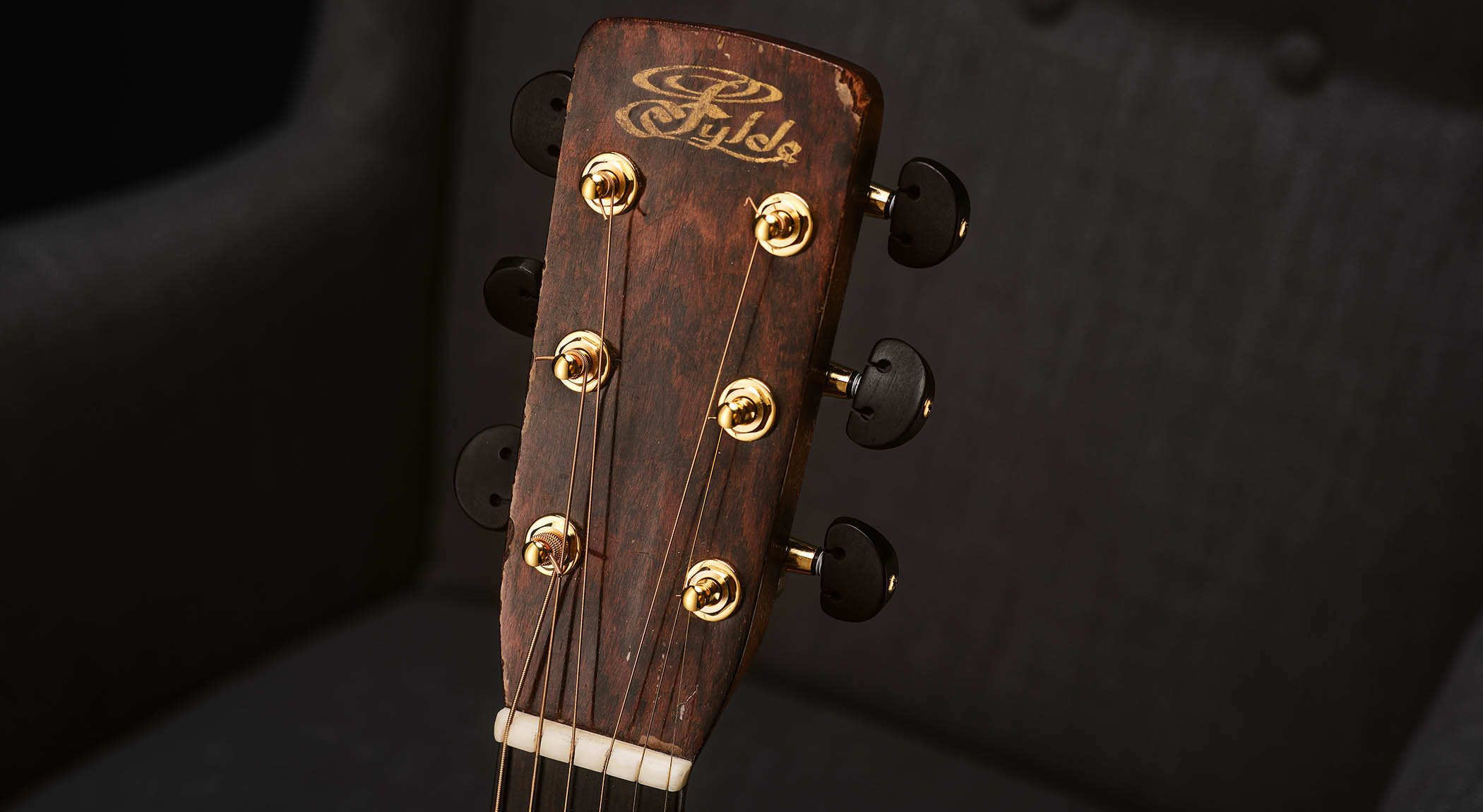
But Bert didn’t keep the guitar for too long, did he?
“He kept it for a number of years. But the next thing I heard was that he had a roadie and at the end of a tour Bert said to him, ‘Do you want a guitar? Take your pick.’ And the guy said, ‘Well, I’d like that one [the Fylde]’.
“And that’s how this guitar came into the hands of this guy, who I think had it for about 20 years. Then someone got in touch with Roger and said, ‘I’ve got a guitar here that used to belong to Bert Jansch,’ and it came into my hands.
“I think Roger basically wanted me to have it because I was part of its creation, not physically, but in terms of getting it to Bert. And he felt that it really should come home to me.”
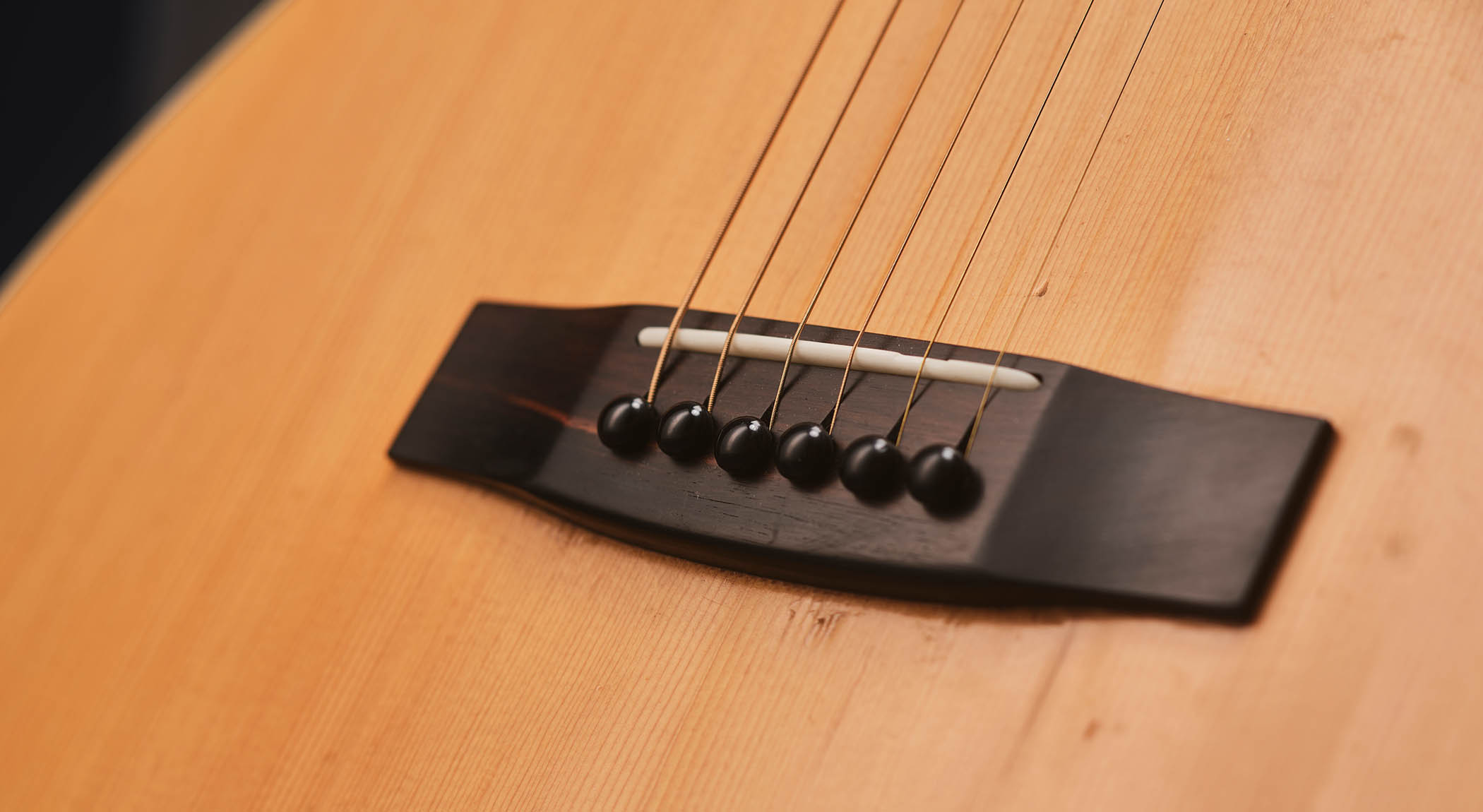
It’s in very fine shape for an instrument that’s more than 50 years old. Did Roger do any work on it before you collected it?
“Yeah, he did. I don’t know what he did to it – because it plays beautifully now – but when I first picked it up, after it had been through his hands in the workshop to make sure it was all sound, the action was a little high for me. He said, ‘Leave it with me, I’ll see what I can do.’ And he did.
“He worked his magic on it without doing anything major in terms of construction because that would take away from the history of the guitar. And now it plays beautifully and I love it.”
You mentioned earlier that you’ve changed the tuners?
“That’s the only thing I changed on it. It had the original Schaller machineheads on it – the old 70s Schallers that we all remember with great fondness. But things have moved on in terms of machineheads now, and I know Roger favours the Gotohs, which I love.
“They’re very close-geared machineheads, which makes tuning quicker and more accurate. So I got a set of those and put those on and then I got some separate black ebony buttons. So I think they set it off beautifully.”
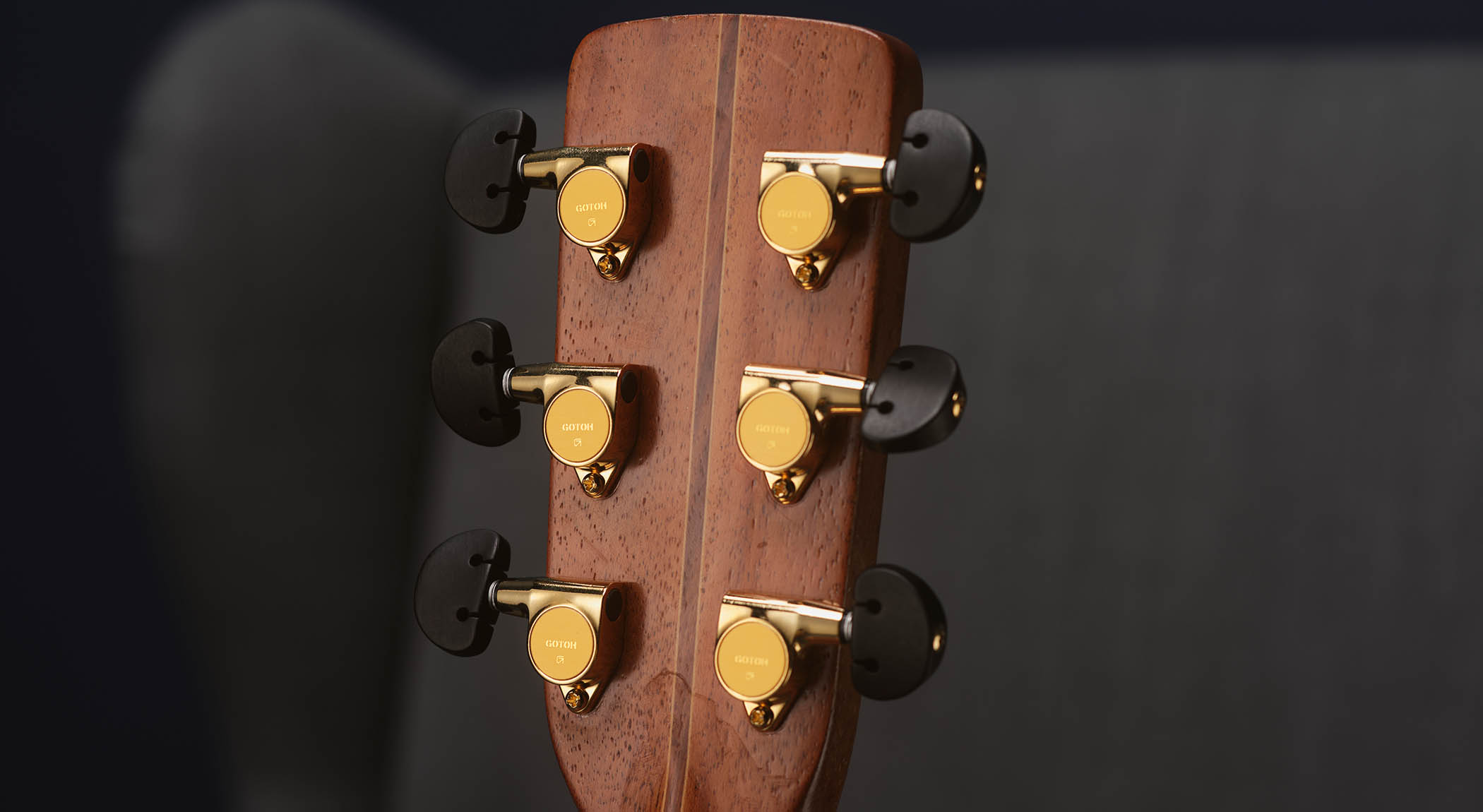
Has the guitar given you any tunes yet?
“Yes, I’ve already started writing a bit. There’s a piece called The Fox At Dawn, which I composed on that guitar. I just cannot put it down and it brings back so many memories of the first time I played a Roger Bucknall guitar.
“They have their own unique sound and it [revived] all those memories of when I was teaching and I would get him to send guitars down from his workshop in Kirkham to sell to some of my students. About two or three guitars would arrive at a time and I’d unpack them and some would be all‑maple guitars, and there’d be mahogany or rosewood ones, too.
“This one has an almost triangular neck. I think I said to Roger, ‘I don’t like the neck,’ and he said, ‘Well, that’s the way I’m making them,’ because he was very stubborn, and he still is, to a degree – he’s entitled to be because he’s Roger Bucknall! I love it. I love that neck. It just feels great.”
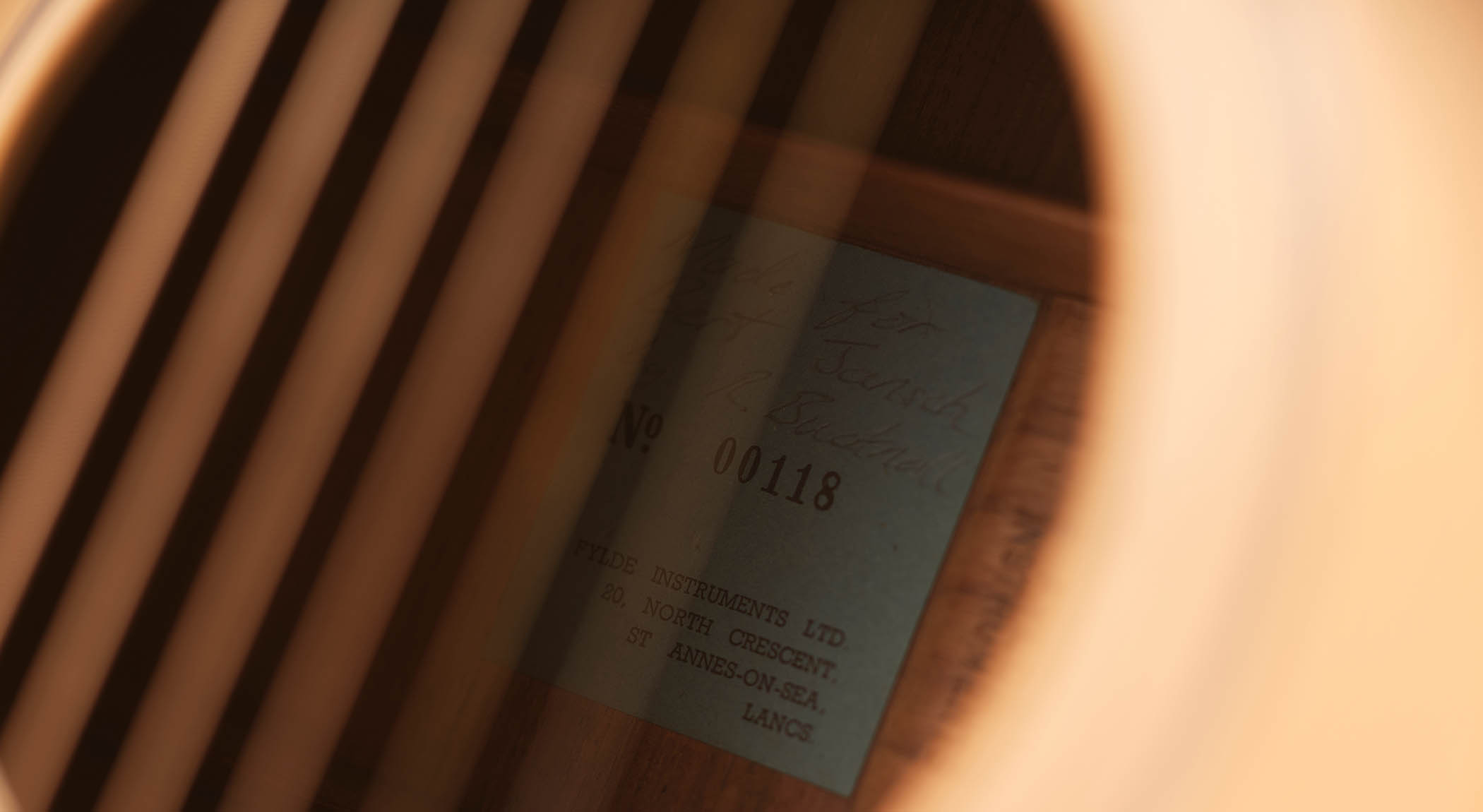
Do you think you’re going to record with it and use it live?
“Definitely. Roger’s fitted a K&K pickup in it, which is a nice, very pure-sounding thing. So yeah, I’ll be using it live. It is very precious to me, so I need to look after it and keep it by my side at all times. I’ve yet to record with it, but I think it’s gonna record beautifully. It has its own mojo, which you only get with a guitar that’s that old.
“Ironically, the top is spruce and I favour cedar these days, but this is a spruce top and Indian rosewood back and sides. But Roger will tell you all the details, what he used and his thought process…”







